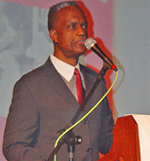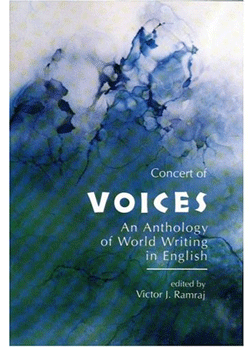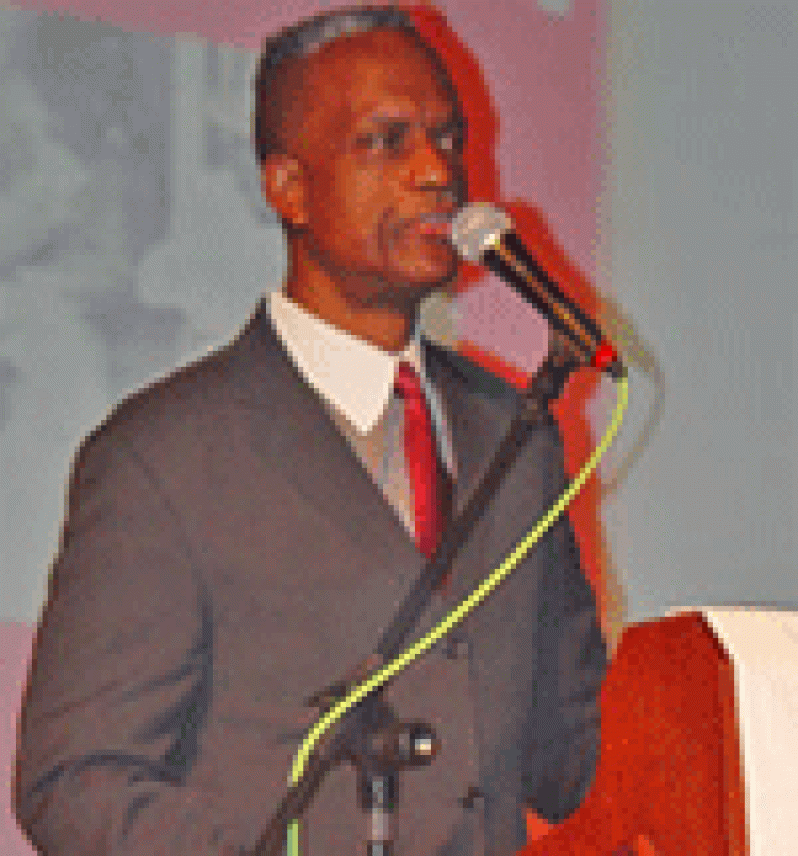(Extract of an interview with Tony Martin author of ‘Caribbean History’, Georgetown, Guyana, May, 2012. Dr Tony Martin was born in Trinidad, studied in the UK (Grey’s Inn) and in the USA. He read for his MA and Ph. D. in History at Michigan State University. He is Emeritus Professor of Africana Studies at Wellesley College. Martin is the author of thirteen books. He wrote most of ‘Caribbean History’ while living in Guyana.)
PP: SO FAR in the book, we have touched on enslaved people and indentureship; let’s move on to the time when the independence spirit was brewing in our hearts. What  was happening then? What was the thought then? Who were the people then?
was happening then? What was the thought then? Who were the people then?
TM: Well, of course, Caribbean people were striving for independence almost from the time of Columbus, in all types of ways. Many of the Africans rebelled, actually setting up quasi-independent territories. Africans actually ruled St. Vincent for a hundred years by the so-called Black-Caribs. There was a quasi-independent State in Dominica for about half a century; the Haitian Revolution was the culmination of that type of activity. In 1804, the Haitian took over their country from the French, who had ruled the country before.
But in terms of us, the former British territories, we had a long sort of period, beginning in the 19th Century with the founding of reform societies asking for constitutional changes. The pace quickened in the 20th Century, and you had the labour movement playing a very important role; you had the middle-class politicians playing a very important role. Eventually, of course, we had a West Indian Federation which attempted to bring most of us, if not all of us, into independence as one large unit, but, as you know, that failed. Eventually, independence came our way, beginning in 1962…
PP: All of this we could find in this book, ‘Caribbean History: From Pre-Colonial Origins to the Present’?
TM: Yes. And more; much more.
PP: What other sensitive aspects and ground breaking issues we could find in this book?
TM: As I’ve said, I’ve dealt with the immigration issues in more detail than anyone else. In fact, the longest chapter in the book deals with movement of people among the islands. People think of Indian immigration as being the largest, but I have discovered that what I call ‘intra-Caribbean immigration’ was actually larger. Over 300, 000  Jamaicans and Haitians alone went to Cuba to cut cane, and many from the other islands. There were hundreds of thousands going from Barbados and Jamaica to build the Panama Canal…
Jamaicans and Haitians alone went to Cuba to cut cane, and many from the other islands. There were hundreds of thousands going from Barbados and Jamaica to build the Panama Canal…
PP: And many what we called ‘islanders’ coming to Guyana.
TM: A lot of Barbadians came to Guyana, and also from the other islands. So there was a huge intra-Caribbean immigration movement.
PP: Immigrants came from elsewhere?
TM: Yes, there was a huge White immigration to Cuba; about a million White people came from Europe to Cuba in the nineteenth and twentieth centuries.
PP: Wow! This is news to me! And I hope… I know others will find your book interesting. What is the target audience of your book?
TM: The primary target audience is undergraduate students, but I’ve tried to write it in such a style, which I hope is engaging enough to appeal to a much wider general audience. The high school students may find it appealing also.
PP: You seem to be on the right path, cognisant of your teaching experience and also writing ability. How do you see the Caribbean in, say, ten, fifteen or thirty years?
TM: You know, that’s an interesting question, because I ended the book with a chapter called ‘Prognosis’, in which I try to look forward. And I think the Caribbean is going to be a major world power… I think we are an incredibly talented people. Numerically, we are much larger than people realise. If you take Cuba and Hispaniola alone, you’re talking about twenty-something million people; that’s more than many European nations. We have produced so much: We have four Nobel Prize winners; we have produced major intellectuals…
PP: world-class sportsmen and women; musicians…
TM: And we were dominating sports longer than people realise…And I could go on and on…
PP: So, you are saying we have a bright future?
TM: I think so.
PP: I’d like to close on that note: We are a talented people; we are a beautiful people with a bright future.
(To respond to this author, either call him on (592) 226-0065 or send him an email: oraltradition2002@yahoo.com)
The Caribbean in retrospect (The conclusion)
SHARE THIS ARTICLE :
Facebook
Twitter
WhatsApp



.jpg)








